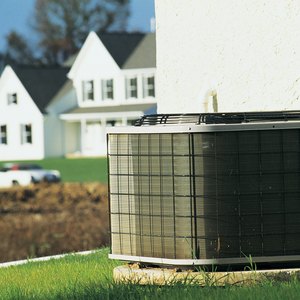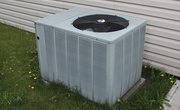
It's a given that central air increases the value of real property. But when evaluating central air in regard to property value, monetary value is only one factor. The larger question is if buyers will consider the property for purchase at all. In 2013, central air was ranked at the top of most important features to those shopping for a new home. This means that while buyers say they're willing to pay more for a home with central air, many refuse to consider a home without it. Central air's true value to a property is its power to attract potential buyers in the first place.
Expectations
Central air is, in most areas, a feature that buyers expect in a property. This expectation is naturally affected by climate. In the southern United States, or any region with a hot summer, the expectation is much higher than it is in areas such as coastal California, where central air is not a necessity. As such, buyers in warm climates may not even consider purchasing a home that does not meet this basic expectation.
The Investment
For such a necessity, central air can be expensive and disruptive to install. A general price estimate for installation is $1,500 per ton of heating and cooling via the exterior condenser and interior cooling unit, where it takes one ton of heating and cooling per 500 square feet of house. The cost of the ductwork and grills must be added to this price, as well. The installation process can furthermore disrupt life in the home, as it is invasive to all areas of the home. Central air can be a daunting investment for a homeowner.
Tax Credit
Homeowners who decide to install central air get a tax incentive: The federal government offers a $300 tax credit. A Manufacturer Certification Statement must be provided for the equipment installed by the HVAC contractor to claim this credit.
Return on Investment
Because central air can be such a sticking point for buyers, the good news for sellers is that it adds at least as much value to the house as it costs to install. A spokesman for the Appraisal Institute contends that it can increase a property's value by up to 10 percent of what the system cost to install. Moreover, having central air opens a property up to a larger pool of buyers, making it more likely to sell -- and to sell faster. Homeowners can feel confident, then, that they are all but guaranteed to get a full return on their investment in central air.
References
Writer Bio
M. Farrugia is a writer and editor with more than five years experience in print and online media. She holds a Bachelor of Arts in French and Francophone studies from UCLA, and a Master of Fine Arts in creative writing/critical studies from CALARTS. Her writing appears regularly on Racked and Curbed.

